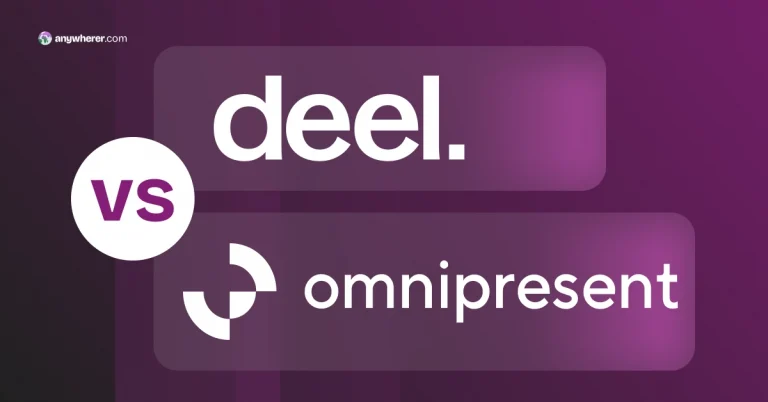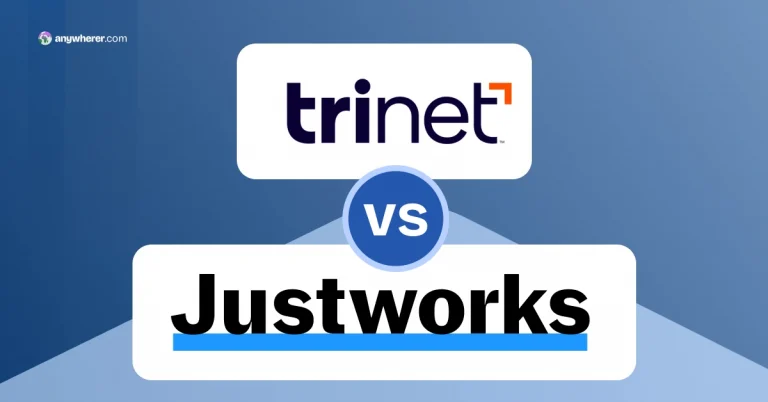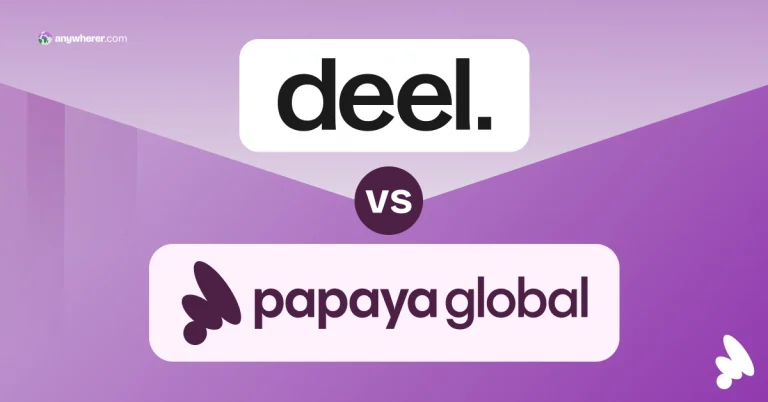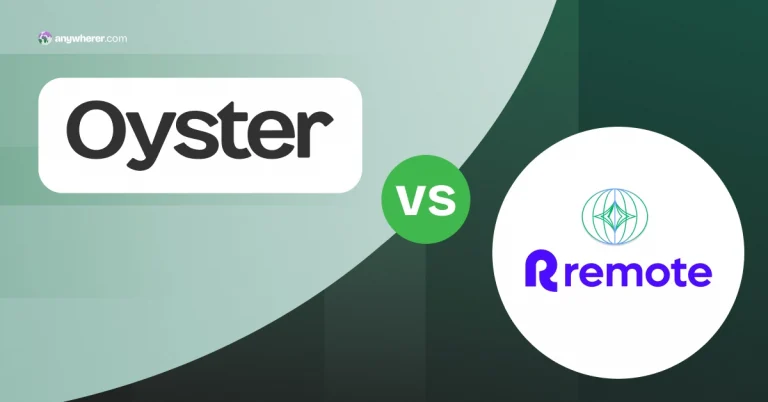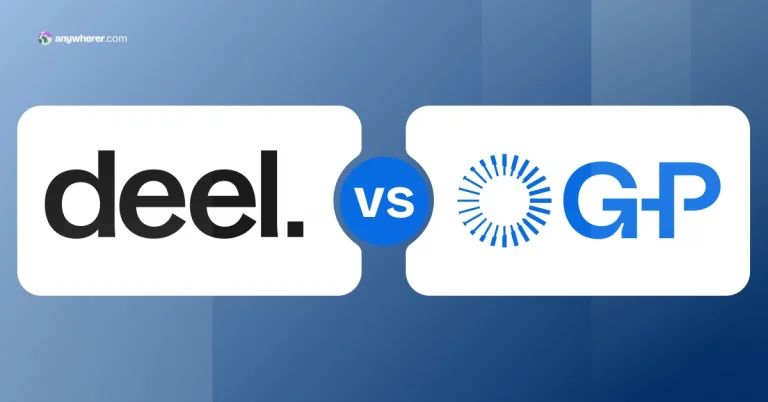Deel vs Multiplier Comparison Overview
Choosing the right EOR provider is crucial for any business aiming to scale successfully. The task isn’t easy, given the wide range of options available. Among them, Deel and Multiplier often stand out as top contenders. So which one is the right fit for your specific business needs?
In this article, we’ll cover it all — from functionality highlights and Employer of Record costs to real user impressions and more.
Deel vs Multiplier: Key Facts
Founded in
Headquarters
Annual Revenue
# of employees
Featured Clients
2019
San Francisco, CA
$500M
5,000+
Founded in
Headquarters
Annual Revenue
# of employees
Featured Clients

2020
New York, NY
$77M
800+
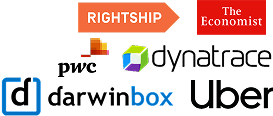
*The statistics shared above reflect the status at the time of publication as of May 2025.
Wrap-Up of Core Differences: Deel versus Multiplier
Deel and Multiplier are both acknowledged solutions in the global EOR landscape. But what sets these two platforms apart? Before diving into a detailed comparison, let’s explore key insights.
Direct entity ownership vs hybrid vendor model
Unlike many Deel alternatives such as Multiplier, Deel EOR operates through fully owned legal entities in over 100 countries, which implies end-to-end control over operations and consistent service delivery across all locations.
Multiplier, in contrast, takes a hybrid infrastructure approach by combining its own local entities with a network of trusted third-party vendors in various countries. This enables flexible and rapid expansion into new markets and potentially deeper local expertise from country-based partners.
Robust integrations vs detailed reporting
Deel places a strong emphasis on automated operations and smooth workflows, achieved with seamless integrations with popular HR, payroll, accounting, and productivity tools.
Multiplier, on the other hand, is built around data-driven decision-making, offering actionable data reports to help companies monitor various global hiring metrics — workforce performance, cost breakdowns, compliance insights, you name it.
Higher EOR price vs potentially high fees of partners
Deel offers premium EOR services at a higher cost compared to Multiplier. However, many clients find these higher costs justifiable in terms of final ROI, as they come with the benefit of a centralized, streamlined, and consistent experience across all regions.
Multiplier, while often more cost-efficient upfront, may incur extra fees depending on the country of operation due to its third-party vendor structure.
Deel vs Multiplier: Core Differences
Comparison Points
Starting price for contractor management
Starting price per EOR
Countries covered
Platform’s core approach
Customer support channels
Free trial
Integrations
Starting at $49 per user/month*
Starting at $599 per employee/month
150+ countries
All-in-one solution for global team
24/7 Live Chat, Webform
WhatsApp, Email
Slack integration for enterprise clients
Yes
100+
Comparison Points
Starting at $40 per user/month*
Starting from $400 per employee/month
150+ countries
Global Human Platform to expand teams across borders
24/7 Live Rep, Email
Help Desk, Phone Support
Chat
Free trial
Integrations

Starting at $40 per user/month*
Starting from $400 per employee/month
150+ countries
Global Human Platform to expand teams across borders
24/7 Live Rep, Email
Help Desk, Phone Support
Chat
No
12
*Please note that all pricing reflects the rates as of May 2025. Other data and statistics mentioned are accurate at the time of writing and may be subject to change.
Want to consider other EOR solutions and view more Deel competitors? Explore out detailed Deel vs Globalization Partners assessment.
Deel and Multiplier Usage Breakdown: Clients, Regions, and Industries
No EOR assessment would be complete without understanding the provider’s key client segments, primary geographical focus, and typical industry use cases.
In this section, we’ll review all these aspects — highlighting the key differences and similarities between the two providers.
What business sizes most commonly use these EORs?
Both Deel and Multiplier cater to a mix of company sizes. Deel places itself among major Multiplier competitors for mid-sized businesses and SMBs, with nearly identical proportions of these client segments. Meantime, it overall has a slightly greater percentage of enterprise client, while Multiplier leans more toward small businesses — with 56% of its client base made up of SMBs.
- Enterprise: 10% of Deel’s clients, 5.5% of Multiplier’s client base;
- Mid-sized businesses: 40% of Deel’s clients, 38.5% of Multiplier’s client base;
- SMBs: 50% of Deel’s clients, 56% of Multiplier’s client base.
Sources:
In which regions do these EORs serve the largest number of clients?
Multiplier has a dominant footprint in Asia, with approximately 2.5 times more clients than Deel, and a slightly stronger presence in Australia. Deel, in turn, maintains a significantly larger presence in Latin America — with over 25 times more clients — and holds more than 3 times the client base of Multiplier in the Middle East and Africa region.
- North America: 11% of Deel’s clients, 10% of Multiplier’s client base;
- Europe: 14% of Deel’s clients, 19% of Multiplier’s client base;
- Latin America: 39% of Deel’s clients, 1.5% of Multiplier’s client base;
- Asia: 26% of Deel’s clients, 62.5% of Multiplier’s client base;
- Middle East & Africa: 10% of Deel’s clients, 3% of Multiplier’s client base;
- Australia: 0.5% of Deel’s clients, 3% of Multiplier’s client base.
Sources:
In which industries are Deel and Multiplier most commonly used?
While the majority of Deel’s clients come from the IT and Computer Software sector, Multiplier’s client base is more diversified across various industries.
IT and Computer Software still lead for both Deel and Multiplier, however the Multiplier’s concentration of clients in this industry is lower compared to Deel. Besides, both Deel and Multiplier also have a strong presence in the marketing & advertising field. Another set of industries where these EOR providers have a similar presence includes financial and legal services, healthcare, and hospital sectors.
- IT & Computer Software: 37% of Deel’s and 29% of Multiplier’s client base;
- Financial & Legal Services: 4.5% of Deel’s and 5% of Multiplier’s client base;
- Marketing, Advertising, Translations: 13% of Deel’s client base, 3.5% of Multiplier’s clients;
- Hospital & Health Care: 4% of Deel’s and 3.5% of Multiplier’s client base;
- Consumer Services: 3.5% of Deel’s and 2% of Multiplier’s client base.
Sources:
Which challenges do Deel and Multiplier help solve most frequently?
Based on the analysis of their customer cases, both Deel and Multiplier place a strong emphasis on global hiring, international scaling, and operational efficiency. Meanwhile, Deel puts more focus on time and cost savings — whereas Multiplier features more cases that emphasize its compliance expertise.
- Global hiring, scaling, and market expansion: 35% of Deel’s case studies and 54.5% of Multiplier’s cases;
- Payroll, HR, and operational efficiency: 26% of Deel’s case studies and 18% of Multiplier’s case studies;
- Time and cost savings: 19% of Deel’s case studies and 9% of Multiplier’s cases;
- Compliance and legal simplification: 11% of Deel’s case studies and 18% of Multiplier’s cases.
Sources:
All-Rounded Multiplier vs Deel Assessment
In this section, Deel and Multiplier are compared side by side across key factors: experience, performance, global presence, and pricing. Explore our findings for each.
Performance (Features and Functionality)
Both Deel and Multiplier deliver robust performance with strong automation, though they focus on different priorities.
Deel emphasizes global compliance through AI-driven worker classification, mass payouts in 120+ currencies, and deep integrations for contractor management.
Meanwhile, Multiplier focuses on speed, simplicity, and user experience, offering near-instant contract generation, real-time onboarding tracking, and an intuitive dashboard for managing distributed teams.
Deel functionality highlights:
- Deel’s background checks for automated hire screening;
- Compliance Hub with alerts on compliance changes;
- Automated tax and benefits calculations.
Multiplier feature differentiators:
- Consolidated payroll reports, compliance, HR, and expense management data tracking;
- Automated payroll adjustments based on time off or expenses;
- Advanced workforce management insights through detailed analytics.
Platform Experience (Technology & UX)
When it comes to user-friendliness, Deel delivers a highly scalable and flexible experience for all users — employers, full-time employees, and contractors alike. Additionally, Deel’s experience of navigating its all-in-one global HR platform is further enhanced by a robust marketplace of third-party tools, plugins, and APIs that consolidate and streamline day-to-day operations.
Multiplier serves as a robust Deel alternative in terms of user experience — fit highly prioritizes simplicity and ease of global employment. With easy-to-use employee self-service portal, guided onboarding within 5 minutes, and automated workflows for efficient payroll and compliance, Multiplier is designed to reduce administrative friction and simplify global hiring at scale.
Presence (Geographical Coverage)
Deel stands out with its owned infrastructure across 150+ countries, giving it end-to-end control over global payroll, compliance, and onboarding processes. Additionally, Deel offers a comprehensive collection of Global Hiring Guides and Global Hiring Toolkit — including salary insights, cost calculator, global benefits tool, and more.
As a strong Deel competitor, Multiplier also offers truly global coverage, with insightful Employment Guides and over 150 supported countries — matching Deel in reach. However, its infrastructure operates under a different model: unlike Deel’s fully owned entities, Multiplier relies on a combination of its own local entities and third-party partnerships in many regions.
Deel’s features for global scaling efficiency:
- Multi-currency, multi-country payments with built-in tax compliance;
- Automated global payroll system supporting 120+ currencies;
- Integrated visa and immigration support for relocated or international employees.
Multiplier’s functionality for global hiring and expansion:
- Global payroll with over 100 supported currencies;
- Local expertise with reliable support teams in different languages;
- Immigration services support
Pricing
Deel pricing is modular, with customizable service packages and a range of add-on services available — ranging from HR management to visa support, equipment provisioning, advanced HR analytics and more. While the pricing structure is straightforward and transparent, users need to consider additional fees that may apply during transactions — currency conversion, withdrawal charges, and bank/intermediary fees, to name a few.
Deel pricing
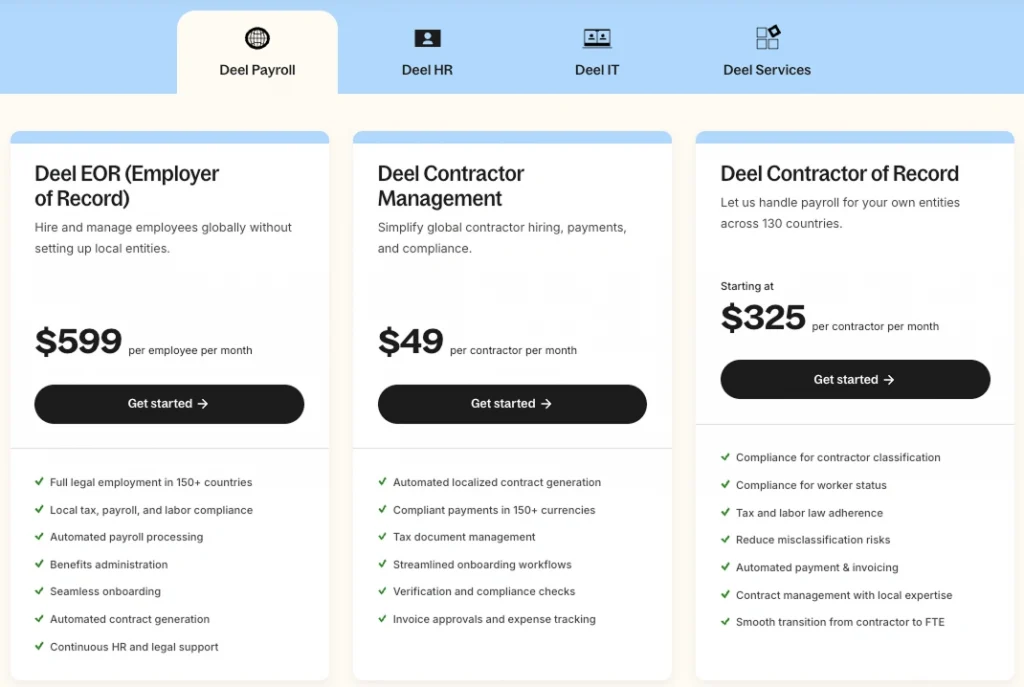
In comparison, Multiplier offers slightly more cost-efficient pricing — potentially saving 18% on the contractor plan and 32.2% on the Employer of Record plan. While the pricing is transparent and clear, total EOR costs may vary due to differing management fees associated with its third-party vendor partnerships, which are quite high in some countries.
Multiplier pricing
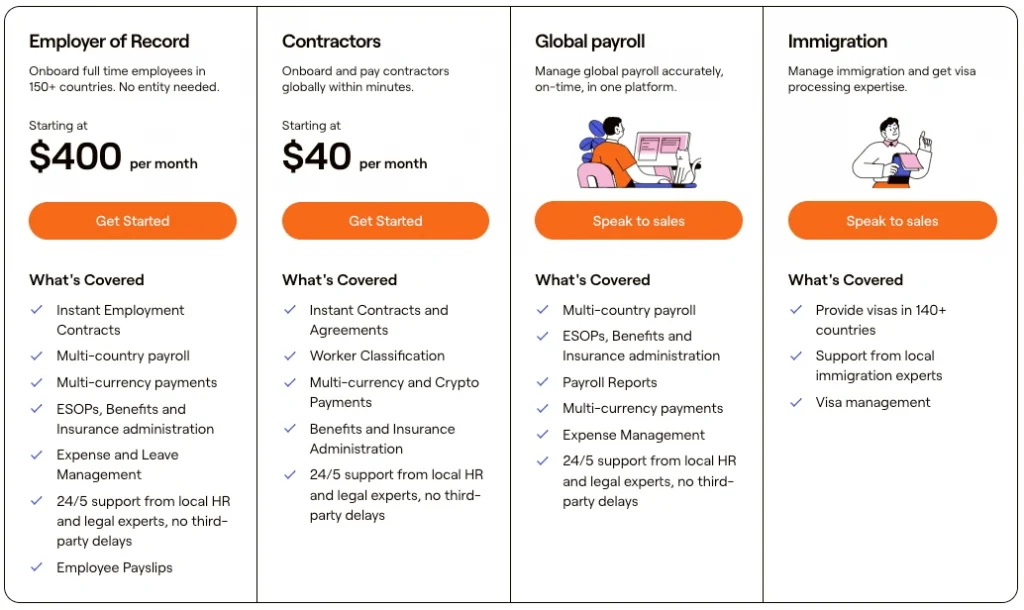
Deel and Multiplier from User Perspective
Real user insights often reveal more than any other assessment. Hence, this section highlights some key takeaways from companies utilizing Deel and Multiplier.
Deel vs Multiplier Reviews and User Ratings
Deel and Multiplier EOR Strengths
Based on the platforms’ user reviews, both Deel and Multiplier excel at user-friendly UI/UX, efficient workflows and versatile functionality to cover numerous global hiring needs.
In the meantime, Multiplier users emphasize the company’s efficient customer support, while Deel’s clients particularly praise the effectiveness of its streamlined workflows.
Deel and Multiplier:
Strengths Based on User Reviews
Neat UI and user-friendly platform
Streamlined operations
Easy, on-time payments
Versatilite payment & withdrawal options

Simple, intuitive navigation
Helpful features
All-in-one solution for HR needs
Reliable customer support
User Considerations about Deel and Multiplier
When it comes to areas for improvement, Deel users occasionally mention comparatively high fees, payment delays and withdrawal challenges, and additional costs such as exit fees. Some have also noted minor delays in customer support or operational processes in certain scenarios.
Meanwhile, Multiplier reviews occasionally point out a somewhat limited service flexibility, invoicing inefficiencies, delayed payments, and insufficient support for complex scenarios as some of the key drawbacks.
Deel and Multiplier:
Considerations Based on User Reviews
High costs and extra fees
Payment delays and inefficiencies
Inconsistent customer service
Occasional withdrawal issues

Limited services flexibility
Invoicing inefficiencies
Payment delays
Lacking capabilities to handle complex scenarios
Deel and Multiplier’s Functionality Highlights
While both Deel and Multiplier provide a rich suite of features for international business expansion and global team management, each platform has its own unique strengths. We’ve uncovered them for you — see the details below.
Deel Global Payroll
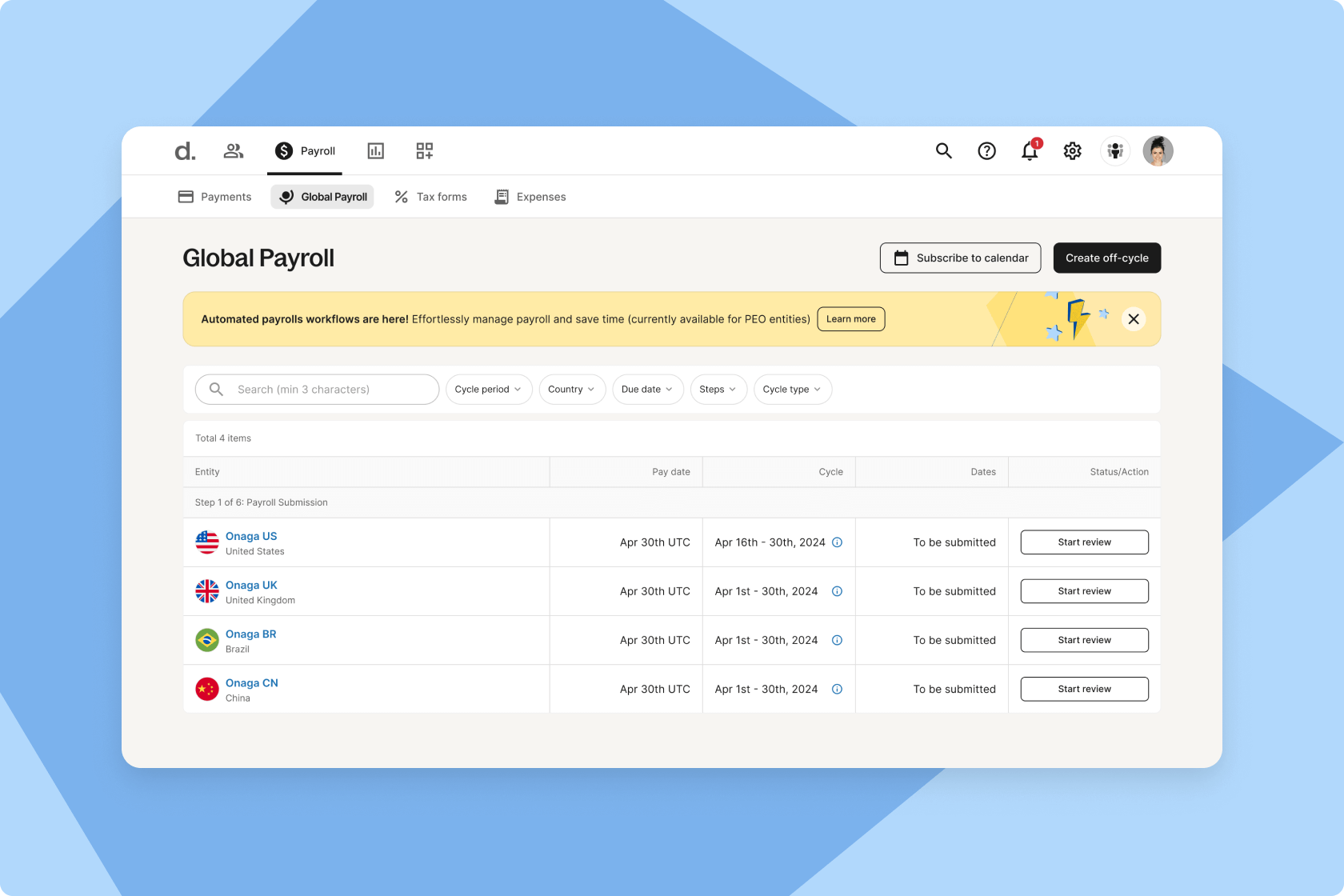
Deel offers powerful payroll capabilities tailored for global teams, featuring over 50 proprietary payroll engines that support operations in 120+ countries. Additionally, the platform enables seamless multi-currency payroll processing and cross-border payments.
Deel’s top payroll features include:
- Streamlined payroll with a bulk payments option;
- Customizable payroll schedules for both contractors and full-time employees;
- Deel Card as an efficient withdrawal method in a reliable currency.
Multiplier Global Payroll
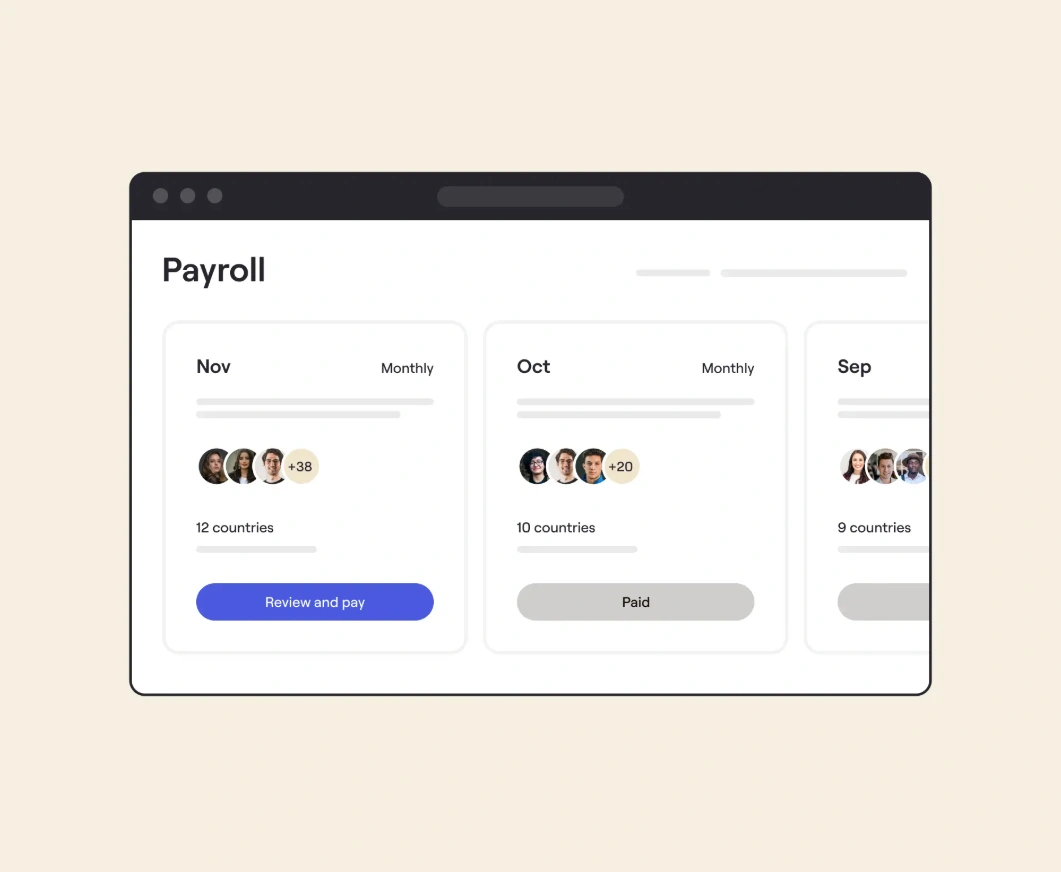
Multiplier’s payroll capabilities incorporate powerful automation, support for multi-currency transactions, and comprehensive reporting tools — thus enabling businesses to streamline payroll operations while maintaining full visibility and compliance. Personalized support further enhances this experience, making global payroll management smooth and efficient.
Multiplier’s key payroll features include:
- Automated calculations of multi-country tax, benefits, and compensation with utmost payroll accuracy;
- Full adherence to payroll compliance requirements;
- Payroll data insights: headcount, gross to net, cost center reports, and others.
Deel Global Hiring
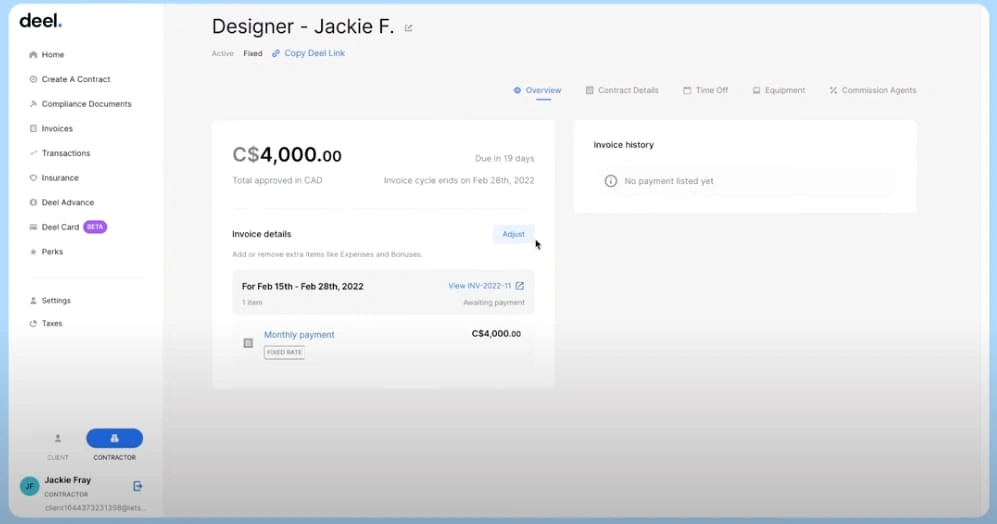
Deel is designed to simplify and streamline global contractor management and international hiring. In doing so, it enables companies to onboard, pay, and manage contractors and employees in over 100 countries with ease and compliance. Its contractor solution supports customizable contracts in multiple languages and currencies, backed by localized tax and legal compliance tailored to each jurisdiction.
Top platform features in this domain are:
- End-to-end solutions for employee hiring through a network of owned entities worldwide;
- Intelligent worker classification engine to streamline hiring and compliance;
- Automated employee contract generation customized for different countries.
Multiplier Global Hiring
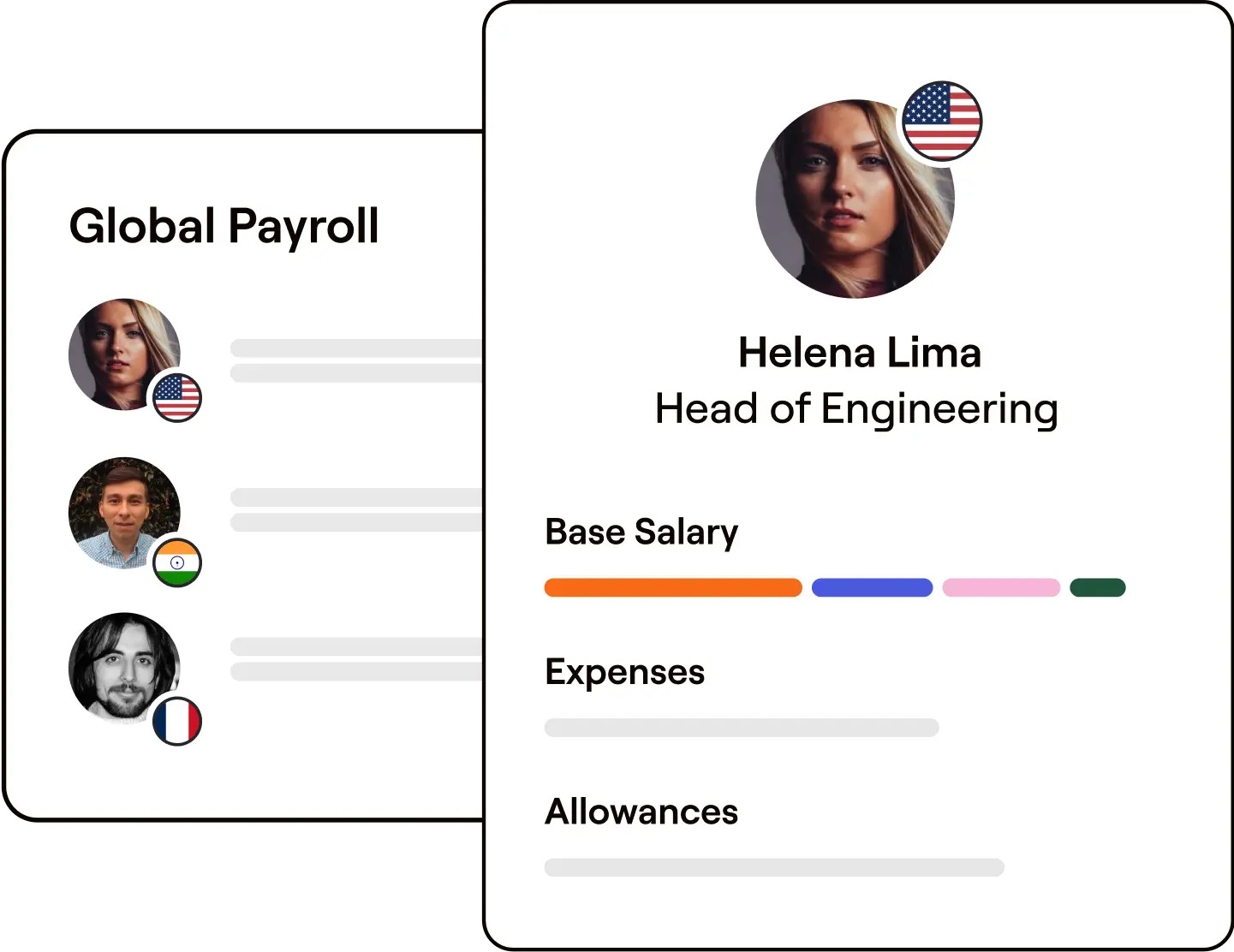
The platform takes care of employment contracts, payroll, benefits, and compliance in over 150 countries. It also streamlines HR operations such as time-off tracking and expense management — thanks to automated approvals and reimbursements ensuring a smoother, more transparent experience across regions.
Multiplier’s global hiring functionality highlights:
- Auto-generated employee contracts built into localized onboarding workflows;
- Full visibility of the employee hiring, onboarding stage, and insights during employment;
- Automated leave management tailored to country-specific laws.
Deel Onboarding
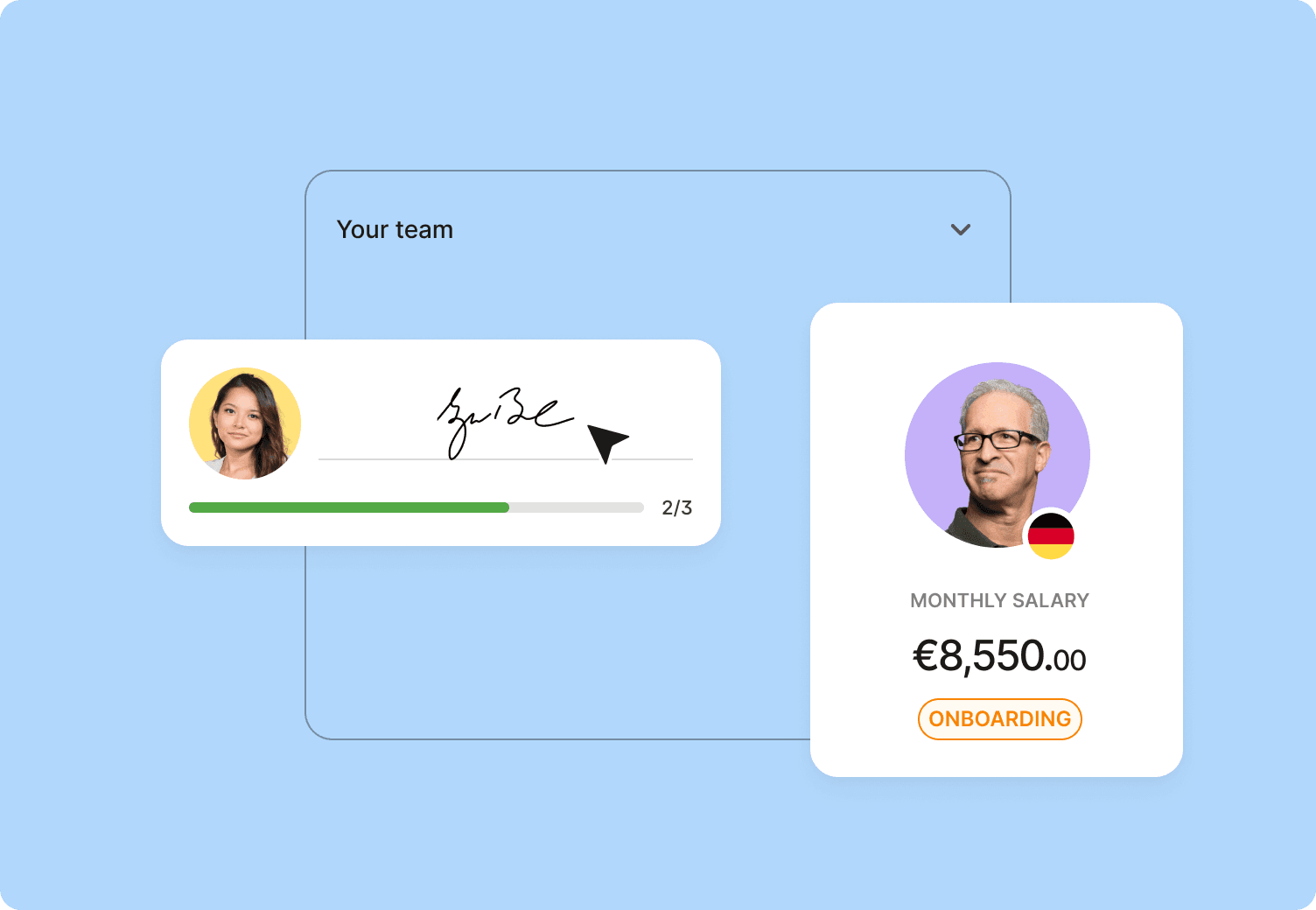
Deel’s employee onboarding solution is designed to streamline and accelerate the global hiring process. From employment contracts to tax forms, the platform automatically adjusts every element to match local labor laws — while step-by-step guidance of a self-service employee portal enables employee onboarding within minutes, regardless of country.
Key features include:
- Streamlined workflows allowing businesses to onboard employees in just 5 minutes;
- Country-specific documentation requests;
- Built-in compliance as per local legal standards;
Multiplier Onboarding
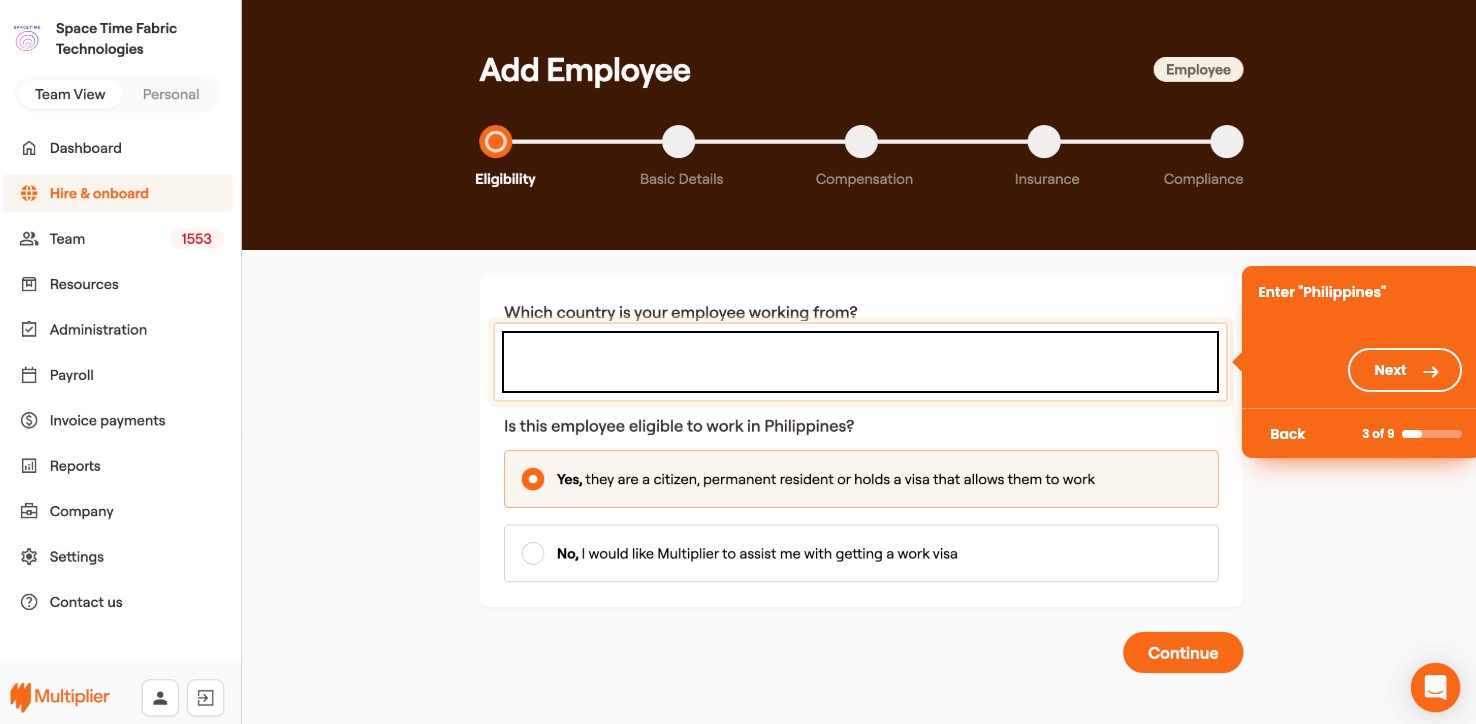
The Multiplier platform offers fully guided, self-serve workflows that walk employers and employees through every step — from offer generation to compliance checks and final documentation. With the onboarding process completed in under 5 minutes, the solution also guarantees 100% local compliance without requiring your team’s manual intervention.
Key capabilities include:
- Automated employment contract generation localized for over 150 countries;
- Real-time onboarding progress tracking with full transparency on the required documents and missing steps;
- Built-in compliance safeguards aligned with local labor codes.
Deel Benefits Administration
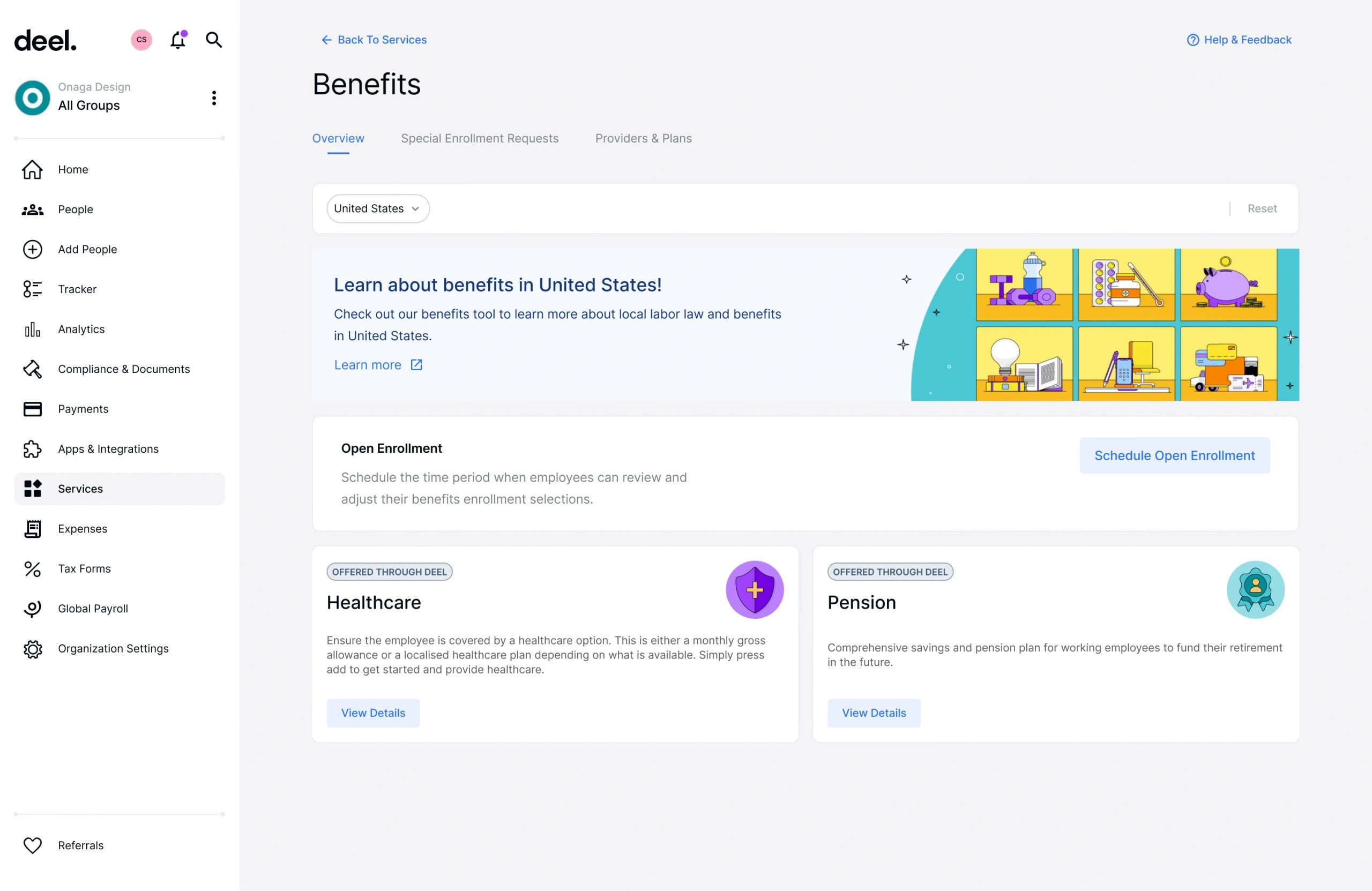
Deel offers region-specific insurance and employee perks directly through its platform, with localized options across 50+ countries. With Deel’s Global Benefits Tool, employees can select their country, explore various benefit tiers (statutory, common, and competitive), and access a tailored portfolio of available options.
Deel’s top features for benefits management include:
- Comprehensive health insurance options;
- Retirement plans;
- PTO management;
- Performance-based and annual rewards;
- Childcare support plans.
Multiplier Benefits Administration
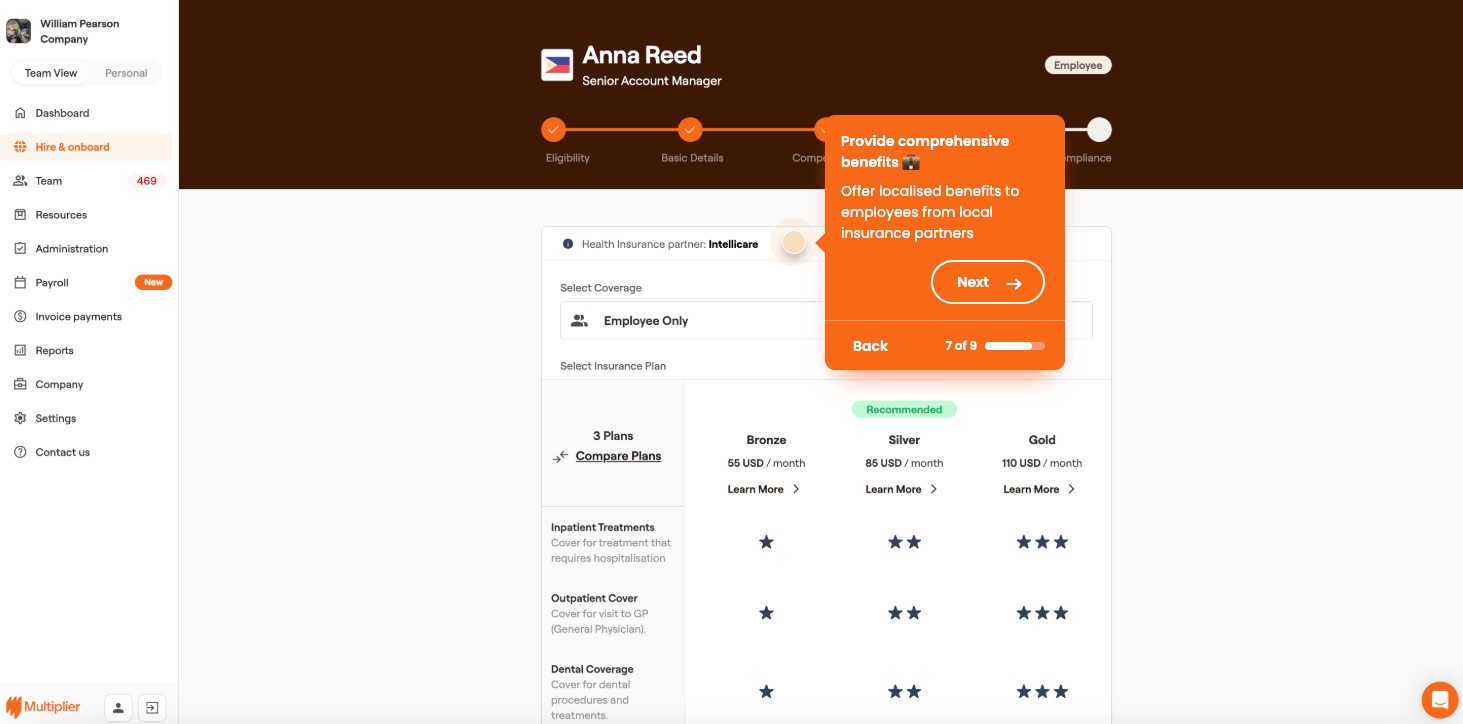
Similarly to Deel, Multiplier allows for flexible customization based on individual roles, employee locations, and internal company policies, ensuring relevance and fairness across the board. The platform offers pre-packaged benefit plans with tiered options — Gold, Silver, and Bronze.
Multiplier’s benefit options incorporate:
- Health insurance options;
- Paid, sick, and maternity leaves;
- Opportunity for setting annual bonuses;
- Fitness and mental health support.
Deel Employment Analytics
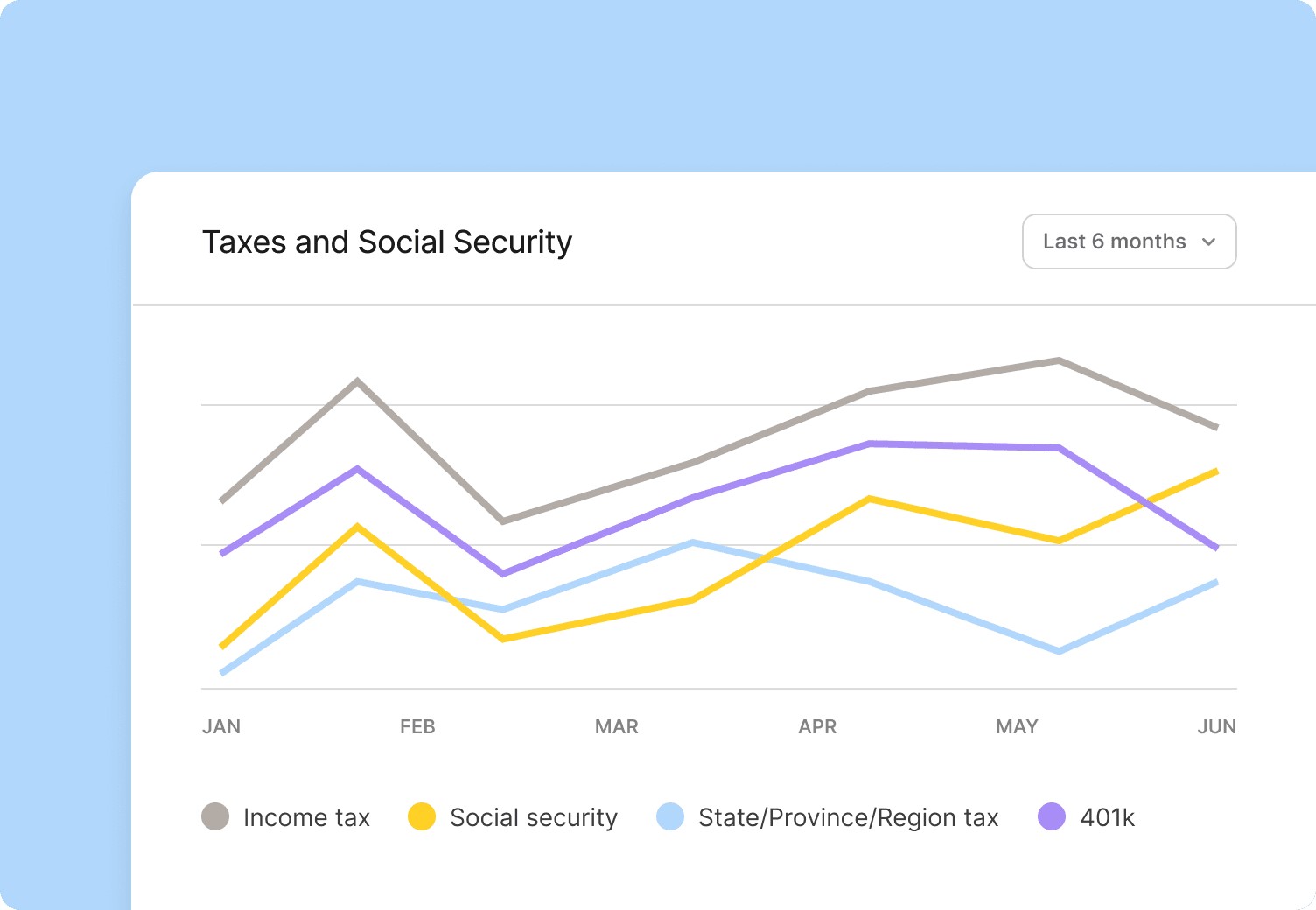
Deel’s reporting and people analytics tools give businesses a clear, data-driven view of their global workforce — including precise tracking contributions, deductions, and taxes across regions, reports on region-based employee trends, average salary data benchmarking across various countries.
Deel’s core reporting insights include:
- Real-time global payroll reports across the company’s entire workforce;
- Visualized growth and headcount trends for better planning;
- Average salary benchmarking for industry and region-specific comparisons;
- Detailed cost breakdowns, including employer contributions and employee deductions.
Multiplier Employment Analytics
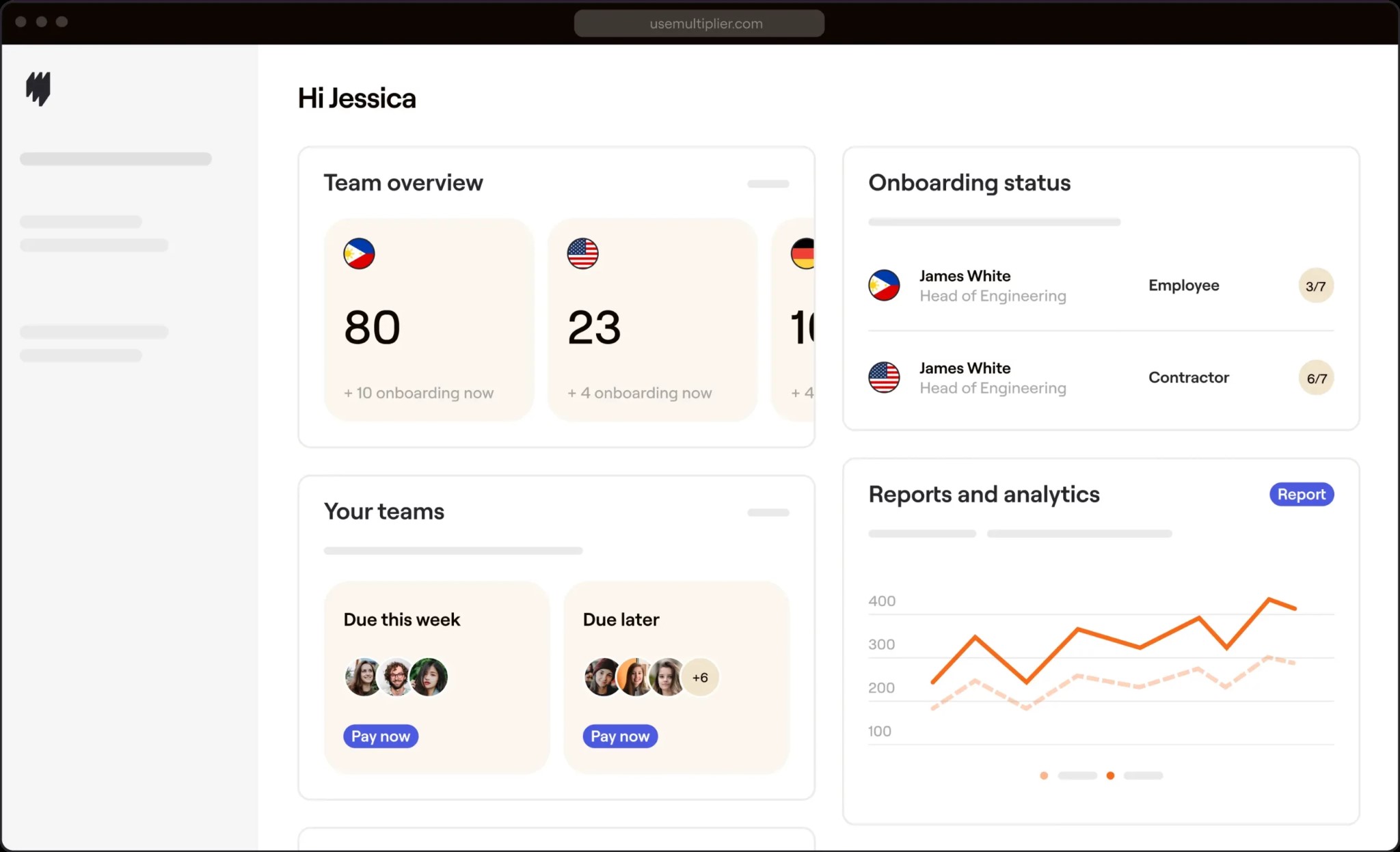
Multiplier’s reporting solution empowers businesses with real-time, data-driven insights. the platform provides centralized access to critical metrics across payroll, benefits, compliance, and employee expenses — thus supporting transparency and data-driven hiring/employment insights.
Multiplier’s reporting features the following insights:
- Compliance status reports;
- Headcount and workforce composition insights by role, department, or country;
- Expense tracking for employee reimbursements across different regions;
- Real-time cost analytics to monitor global labor spend and forecast workforce expenses.
Deel or Multiplier? Final Thoughts
Deel and Multiplier both stand out as powerful EOR solutions, featuring a scalable platform, user-friendly experience, and strong global hiring capabilities.
Highlighting the platform’s specialties, Deel is a strong fit for companies that require a seamlessly integrated infrastructure of various third-party tools. With over 100 integrations, Deel can accommodate a wide range of operational needs — which is likely one of the reasons why a greater number of mid-sized and large enterprises tend to choose Deel vs Multiplier.
In contrast, Multiplier excels in user-friendliness and operational simplicity — which makes it stand out from other Multiplier alternatives. Besides, its cost-efficiency also makes it a more attractive option for fast-growing SMBs and businesses expanding into Asia-Pacific and emerging markets.
FAQ on Multiplier vs Deel Differences
What are the main differences between Deel and Multiplier?
The main difference lies in their operating model: Deel operates through owned legal entities, while Multiplier uses a hybrid model with local partners.
Do Deel and Multiplier offer similar pricing models?
Multiplier’s EOR cost is slightly lower than Deel’s. Besides, Deel’s pricing is slightly more modular, with the possibility to add a range of add-on services, all for separate cost. In contrast, Multiplier’s plans are pre-packaged and less customizable.
Do both platforms integrate with popular payroll or HR systems?
Yes, both solutions support integrations. However, in this aspect, Deel is a much stronger Multiplier competitor, offering a significantly larger ecosystem with over 100 integrations across industry-relevant tools.
How scalable are Deel and Multiplier for fast-growing teams?
Both are highly scalable thanks to their rich functionality and streamlined workflows: in particular, Deel suits companies seeking automation and global uniformity, while Multiplier is ideal for those needing quick market entry and localized support through Multiplier’s partner network.
Consult with an expert to determine whether Deel or Multiplier is a better fit for your business

Yaryna is our lead writer with over 8 years of experience in crafting clear, compelling, and insightful content. Specializing in global employment and EOR solutions, she simplifies complex concepts to help businesses expand their remote teams with confidence. With a strong background working alongside diverse product and software teams, Yaryna brings a tech-savvy perspective to her writing, delivering both in-depth analysis and valuable insights.

